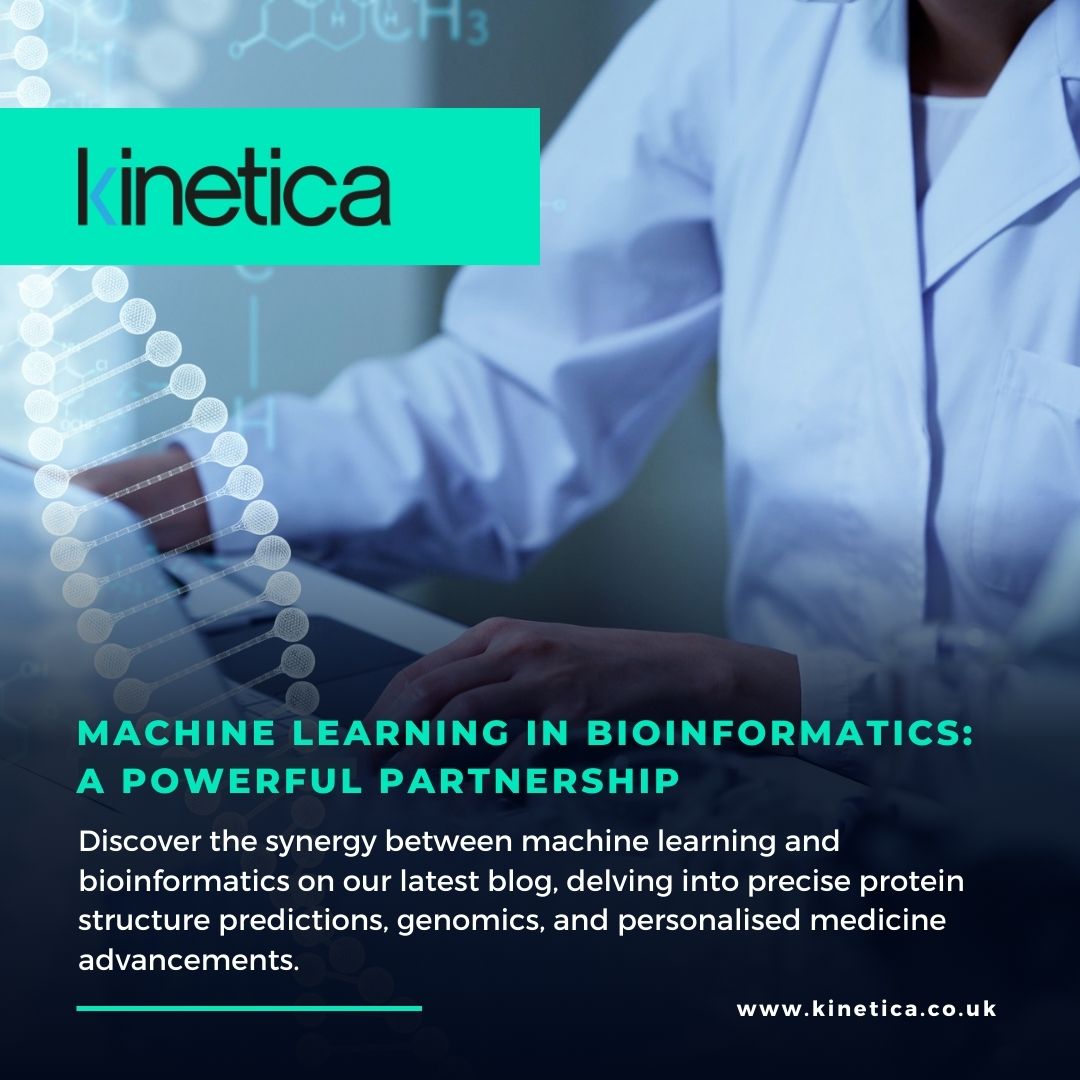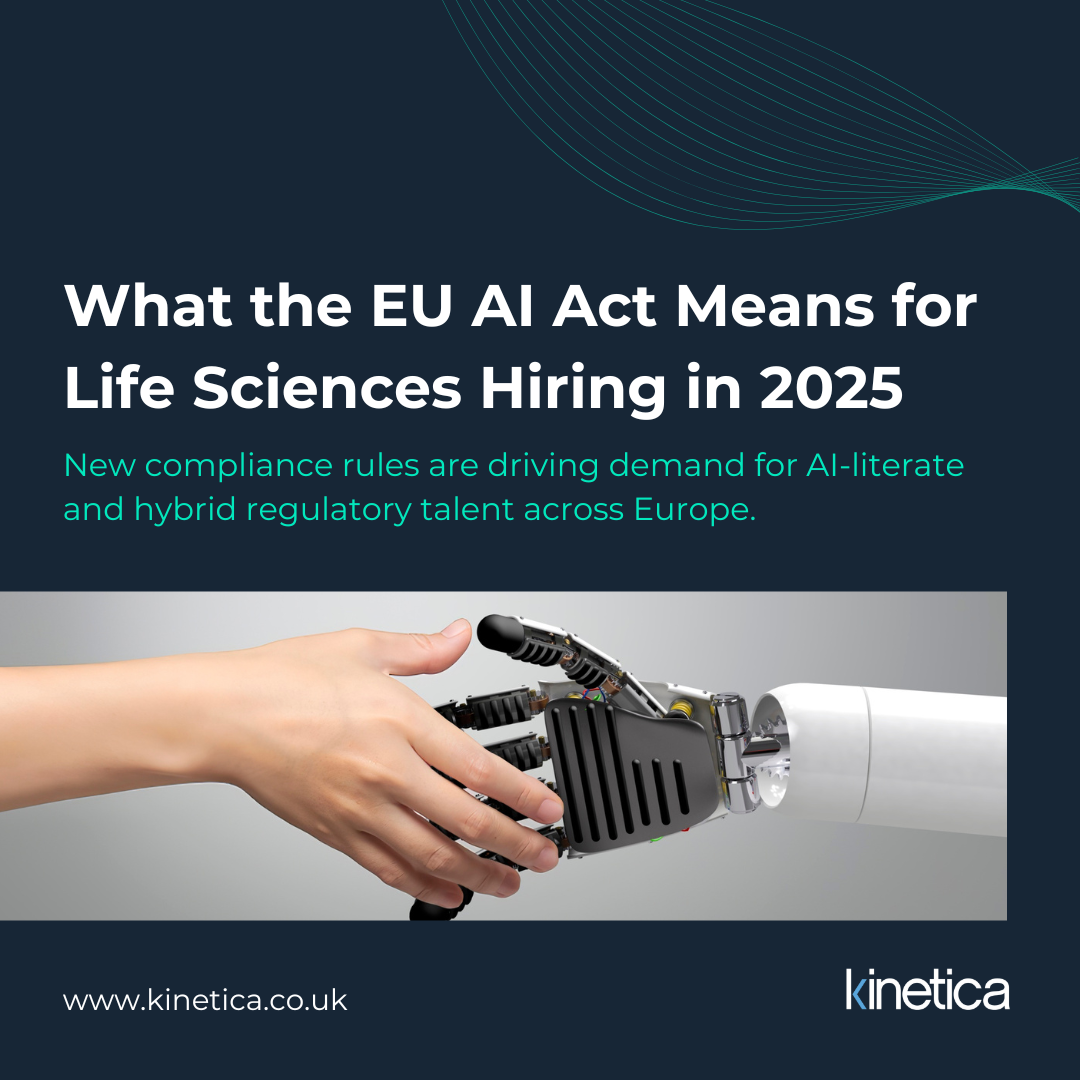INSIGHTS
The latest insights & news from Kinetica
Machine Learning in Bioinformatics: A Powerful Partnership
01 Feb, 20245 MinutesIn the dynamic realm of scientific discovery, the intersection of machine learning and bioin...

In the dynamic realm of scientific discovery, the intersection of machine learning and bioinformatics has emerged as a powerful partnership, unlocking new avenues for understanding and transforming the field of life sciences. This synergy has paved the way for groundbreaking advancements in areas such as precise protein structure predictions, genomics, and personalised medicine.
Precise Protein Structure Predictions:
One of the key areas where machine learning has significantly contributed to bioinformatics is in the realm of precise protein structure predictions. Understanding the three-dimensional structure of proteins is crucial for deciphering their functions and interactions within living organisms. Traditionally, predicting protein structures was a laborious and time-consuming process. However, machine learning algorithms have revolutionised this field by analysing vast datasets to discern complex patterns and relationships.
State-of-the-art deep learning models, such as neural networks, have demonstrated remarkable accuracy in predicting protein structures. These models learn from extensive databases of known protein structures, enabling them to extrapolate and predict the structures of novel proteins with impressive precision. This capability accelerates drug discovery processes, aids in understanding disease mechanisms, and opens avenues for designing targeted therapies.
Genomics:
Genomics, the study of an organism's complete set of DNA, has experienced a paradigm shift with the integration of machine learning. The sheer volume and complexity of genomic data necessitate sophisticated analytical tools to extract meaningful insights. Machine learning algorithms excel in handling large datasets, identifying patterns, and making predictions, making them invaluable in genomics research.
Machine learning models are employed in tasks such as DNA sequencing, variant calling, and identifying genetic markers associated with diseases. The ability to analyse vast genomic datasets enables researchers to uncover hidden relationships, identify potential disease risk factors, and even predict patient responses to specific treatments. The marriage of machine learning and genomics is propelling the field towards a more personalised and precise understanding of genetic information.
Personalised Medicine Advancements:
Perhaps one of the most promising outcomes of the collaboration between machine learning and bioinformatics is the advancement of personalised medicine. Traditional medical approaches often adopt a one-size-fits-all strategy, but the unique genetic makeup of individuals can significantly influence their response to treatments.
Machine learning algorithms analyse individual patient data, including genetic information, lifestyle factors, and medical history, to tailor treatment plans that are optimised for each patient. This level of personalisation enhances treatment efficacy, reduces adverse effects, and ultimately improves patient outcomes. The integration of machine learning in healthcare is revolutionising the way we approach and deliver medical treatments, ushering in an era of precision medicine.
In conclusion, the symbiotic relationship between machine learning and bioinformatics is reshaping the landscape of biological research. From precise protein structure predictions to genomics and personalised medicine, this powerful partnership is driving innovation and accelerating discoveries. As we continue to unravel the mysteries of life at the molecular level, the collaborative efforts of machine learning and bioinformatics are poised to redefine the boundaries of what is possible in the field of life sciences.
The future of bioinformatics holds the promise of more accurate predictions, deeper insights, and personalised solutions for healthcare challenges, all made possible by the seamless integration of machine learning.
How do you envision the role of machine learning evolving in bioinformatics over the next decade? Discuss your thoughts in the comments below.
#MLBioinformatics #PrecisionMedicine #GenomicsRevolution #ProteinStructurePredictions #FutureOfHealthcare



